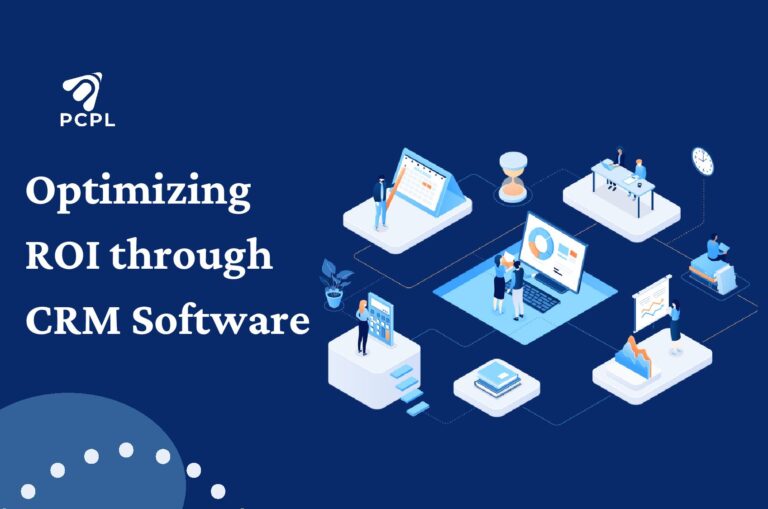
Maximizing ROI with CRM Software Implementation
Customer relationship management (CRM) software has become an indispensable tool today for organizations aiming to streamline their operations, improve customer satisfaction, and ultimately maximize return on investment (ROI). With the right CRM software implementation strategy in place, businesses can harness the power of data-driven insights, enhance customer interactions, and drive revenue growth.
CRM software implementation can be a game-changer for businesses seeking to maximize their ROI.
Improved Customer Insights
Streamlined Sales Processes
Enhanced Collaboration
Data-Driven Decision Making
CRM software captures and analyzes vast amounts of customer data, generating actionable insights. By leveraging these insights, businesses can make informed decisions, identify trends, and tailor their strategies to maximize revenue.
Growing recognition of CRM’s value
Overall CRM Market Size
According to a report by Grand View Research, the global CRM market size was valued at USD 43.7 billion in 2020 and is expected to reach USD 113.4 billion by 2028, growing at a compound annual growth rate (CAGR) of 11.5%.
The increasing adoption of cloud-based CRM solutions, coupled with the rising demand for automation and data-driven insights, is driving the market’s growth.
CRM Software Spending by Businesses
In a study by Gartner, it was estimated that businesses spent approximately $48.2 billion on CRM software in 2020.
The spending on CRM software is projected to continue growing, reaching $80 billion by 2025, according to a report by MarketsandMarkets.
CRM Spending by Business Size
Small and medium-sized businesses (SMBs) are increasingly investing in CRM software to streamline their operations and compete with larger enterprises. By 2025, SMBs are expected to contribute significantly to CRM spending, reaching around $30 billion, as stated by the SMB Group.
Large enterprises continue to allocate substantial budgets to CRM software. According to Gartner, the average annual spending on CRM by large organizations can range from $1 million to $10 million, depending on the scale of the implementation and the complexity of business requirements.
CRM Implementation and Integration Costs
The cost of CRM software implementation varies depending on factors such as the size of the organization, customization needs, and integration requirements.
A survey conducted by Software Advice found that the average CRM implementation cost for small businesses (less than 100 employees) ranges from $10,000 to $50,000, while mid-sized businesses (100 to 500 employees) can expect to spend between $50,000 and $150,000. Large enterprises may invest significantly more, with implementation costs ranging from $150,000 to several million dollars.
Integration costs are an additional consideration. According to a study by Forrester, businesses typically spend around 30% of their CRM software budget on integration efforts to connect CRM with other enterprise systems and applications
CRM ROI and Business Value
The return on investment (ROI) from CRM software can be substantial. Nucleus Research conducted a study showing that for every dollar spent on CRM, the average ROI is $8.71.
A separate study by Salesforce found that businesses experienced an average increase in sales revenue of 41%, a 34% improvement in customer retention rates, and a 32% increase in sales productivity after implementing CRM.
Key Strategies for Maximizing ROI with CRM Software Implementation
Clearly Define Objectives:
Align CRM with Business Processes:
CRM software should align seamlessly with existing business processes to ensure a smooth transition and maximize user adoption. This may require customization and integration with other systems, such as ERP or marketing automation tools, to create a unified ecosystem that enhances overall efficiency.
Comprehensive Training and User Adoption:
Data Quality and Management:
Data integrity is vital for effective CRM implementation. Make sure that data is up-to-date, accurate, and properly segmented. Implement data governance policies, establish data entry standards, and regularly clean and deduplicate records. High-quality data enables more accurate forecasting, personalized marketing, and better decision-making.
Continuous Improvement and Iteration:
CRM implementation is an iterative process. Regularly evaluate the software’s performance, gather feedback from users, and identify areas for improvement. Leverage CRM analytics and reporting capabilities to measure ROI, track key performance indicators (KPIs), and refine strategies accordingly.
Realizing the Benefits of CRM Software Implementation
Increased Efficiency and Productivity:
By automating repetitive tasks, streamlining workflows, and providing a centralized platform, CRM software frees up valuable time for employees to focus on more strategic activities. This increased efficiency translates into higher productivity and better resource allocation, ultimately leading to improved ROI.
Improved Customer Satisfaction and Retention:
CRM software enables businesses to deliver personalized customer experiences by understanding their needs, preferences, and purchase history. Enhanced customer satisfaction leads to increased loyalty, higher retention rates, and positive word-of-mouth referrals, all of which contribute to a healthier bottom line.
Enhanced Sales and Marketing Performance:
Strategic Decision-Making:
Summing Up
CRM software implementation has the potential to revolutionize the way businesses engage with customers, optimize processes, and drive revenue growth. By clearly defining objectives, aligning with business processes, prioritizing user adoption, ensuring data quality, and embracing continuous improvement, organizations can maximize their ROI with CRM software.
When implemented effectively, CRM becomes a powerful tool that not only enhances operational efficiency but also enables businesses to deliver exceptional customer experiences, boost sales performance, and achieve long-term success in today’s highly competitive marketplace.
